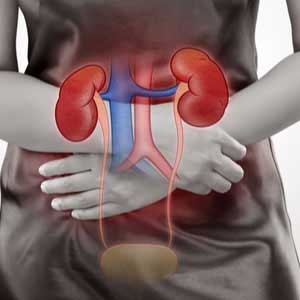UTI Treatment In Vijayawada
A urinary tract infection, or UTI, is a disease in any part of your urinary system, which incorporates your kidneys, bladder, ureters, and urethra.
Consult kidney specialist Dr. Anvesh Golla for urinary tract infections in Vijayawada.
What causes a urinary tract infection (UTI)?
Urinary tract infections are brought about by microorganisms — usually bacteria — that enter the urethra and bladder which might cause inflammation and infection. However, a UTI most commonly occurs in the urethra and bladder, bacteria can likewise travel up the ureters and taint your kidneys.
Over 90% of bladder infection (cystitis) cases are brought about by E. coli, a bacterium normally presents in the intestines.
What are the Symptoms of UTIs?
The symptoms of a UTI can include:
- Burning inclination when you urinate
- A regular or extreme urge to pee, despite the fact that little comes out when you do
- Dark, dim, bloody, or bizarre smelling pee
- Feeling tired or precarious
- Fever or chills (a sign that the disease might have arrived at your kidneys)
- Pressure or pain in the back or lower abdomen

How are UTIs treated?
UTIs are treated with "antibiotic agents". Antibiotics are prescriptions that annihilate microbes and prevent it from growing. You might be told to take the antibiotics for 1 or 2 weeks. This helps ensure the infection has been cured. You may likewise be asked to drink a lot of water.
After Treatment
UTIs symptoms frequently improve within a couple of days of antibiotics. However, all UTI symptoms can be resolved after the course of antibiotics is finished, you need not require another urine culture to prove that the infection is gone.
Contingent upon the condition, if you have a complicated UTI, you might require a urine culture to show that the UTI is totally gone. If your symptoms don't disappear even after antibiotics, then you might require a more extended course of antibiotics, an alternate antibiotic, or different approach to taking it.
Somewhere in the range of 20% and 40% of women who have a UTI will have another. Men are less inclined to get a UTI in first place. In any case, if they get one, they are probably going to have another that the bacteria will tend to hide inside the prostate.
If you get UTIs often (3 or more per year), you ought to see your doctor. Your doctor should do more tests, (for example, checking assuming the bladder purges) to figure out why. If you continue to get UTIs, a more extended course of low-dose antibiotics or taking an antibiotic after sex might help. There are likewise methods for self-testing that your doctor might orchestrate that let your diagnosis and treat your UTIs at home
If you think you have a UTI seeing your doctor is significant. Your doctor can determine whether you have a UTI with a urine test.
Contact Dr. Anvesh Golla for Polycystic Kidney Disease Treatment In Vijayawada
